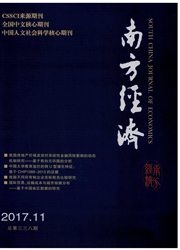
欢迎您!东篱公司
退出

 中文摘要:
中文摘要:
一直以来,理论界和实务界对证券市场实施涨跌停机制的效果存在争议。本文以改进了的Kim和Rhee(1997)的研究方法为基础,结合上海股市的个股价格资料,从波动率溢出假设、延迟价格发现假设和交易干涉假设三个方面对上海股市涨跌停机制的绩效进行实证考察。研究结果表明。中国股市的涨跌停机制是缺乏效率的。文章的最后提出了放宽价格限制幅度和采取不对称的涨跌停机制的政策建议。
 英文摘要:
英文摘要:
This study evaluates the performance of price limits mechanism in Shanghai stock market from three aspects: the volatility spillover hypothesis, the delayed price discovery hypothesis, and the trading interference hypothesis. The results show that the price limits mechanism in China is ineffective. This study finally proposes that the price limits in China should be relaxed and asymmetry.
 同期刊论文项目
同期刊论文项目
 同项目期刊论文
同项目期刊论文
 期刊信息
期刊信息
